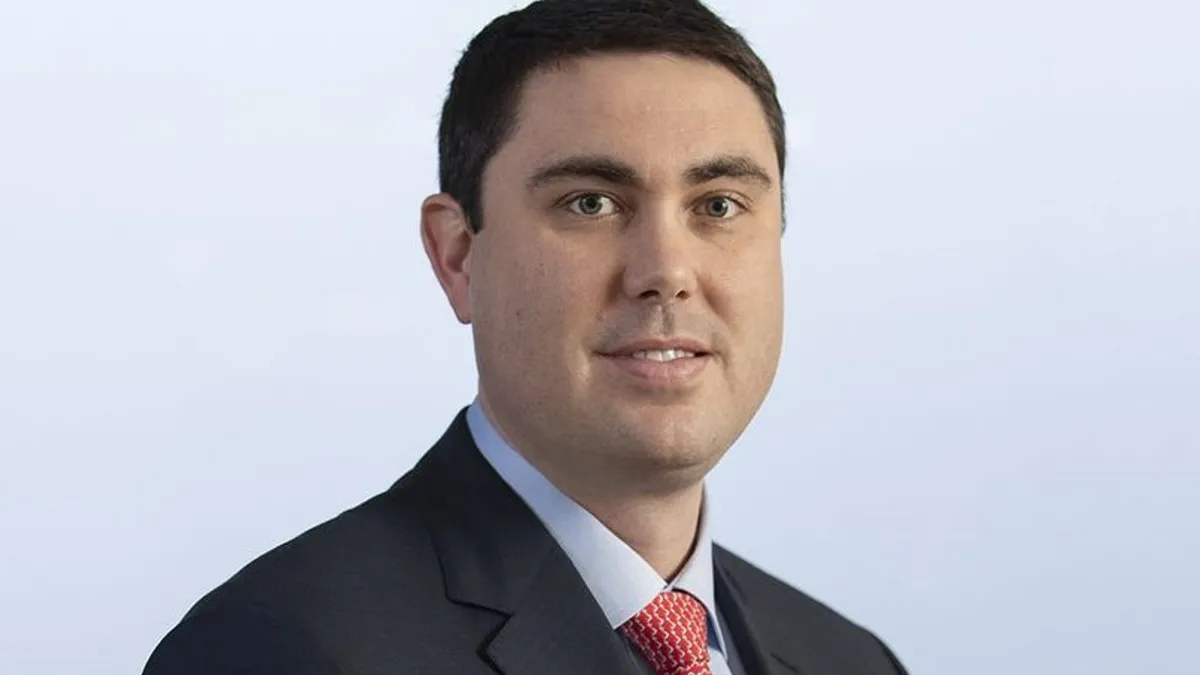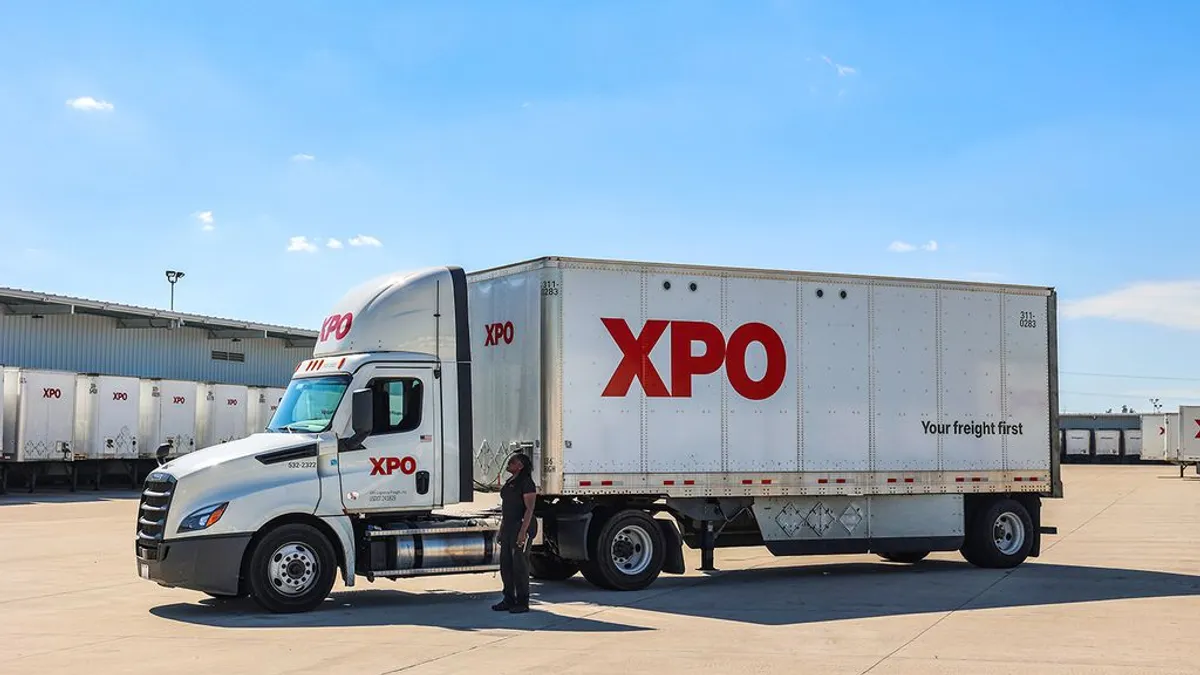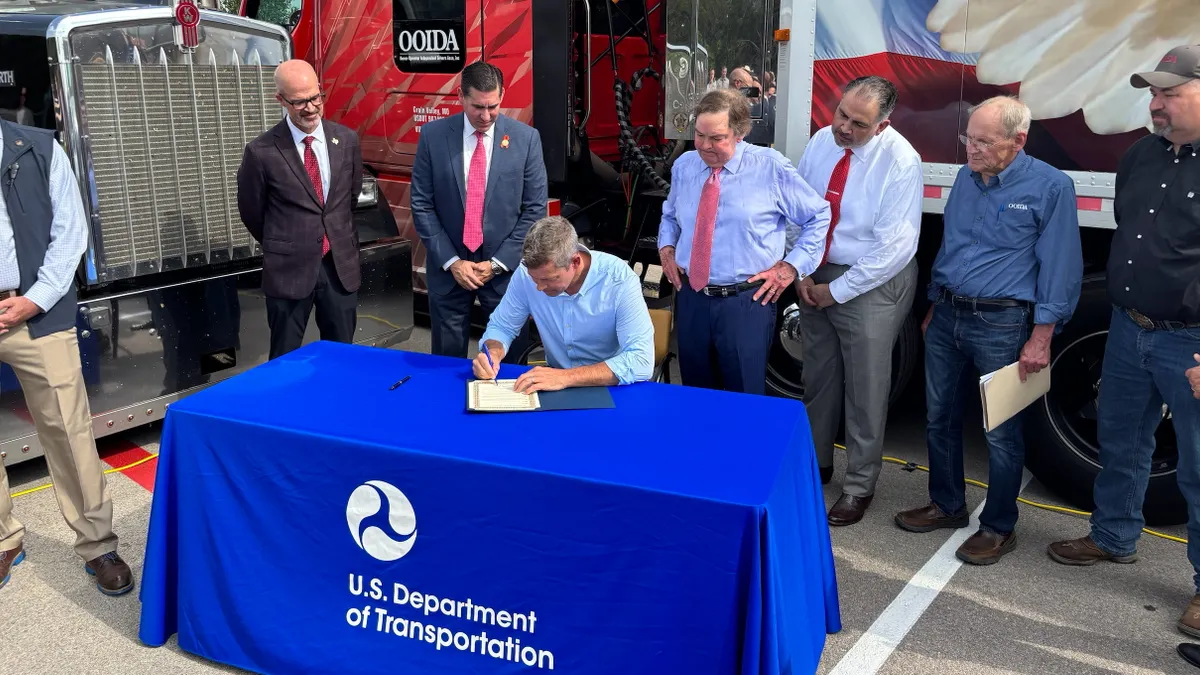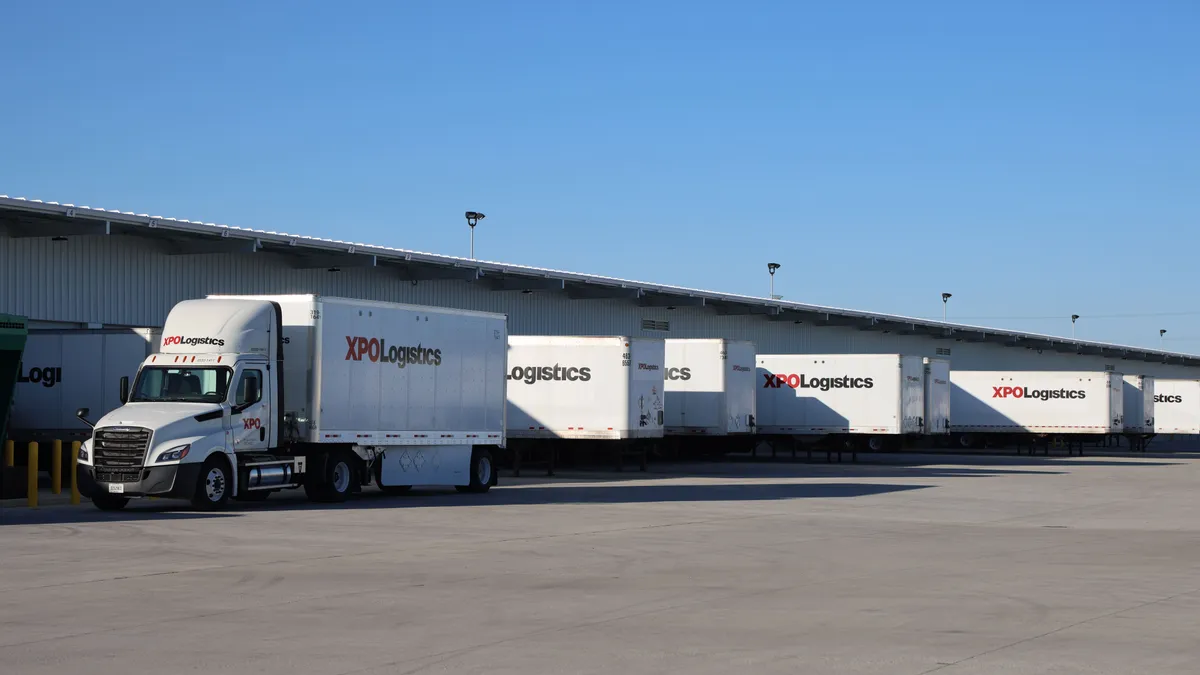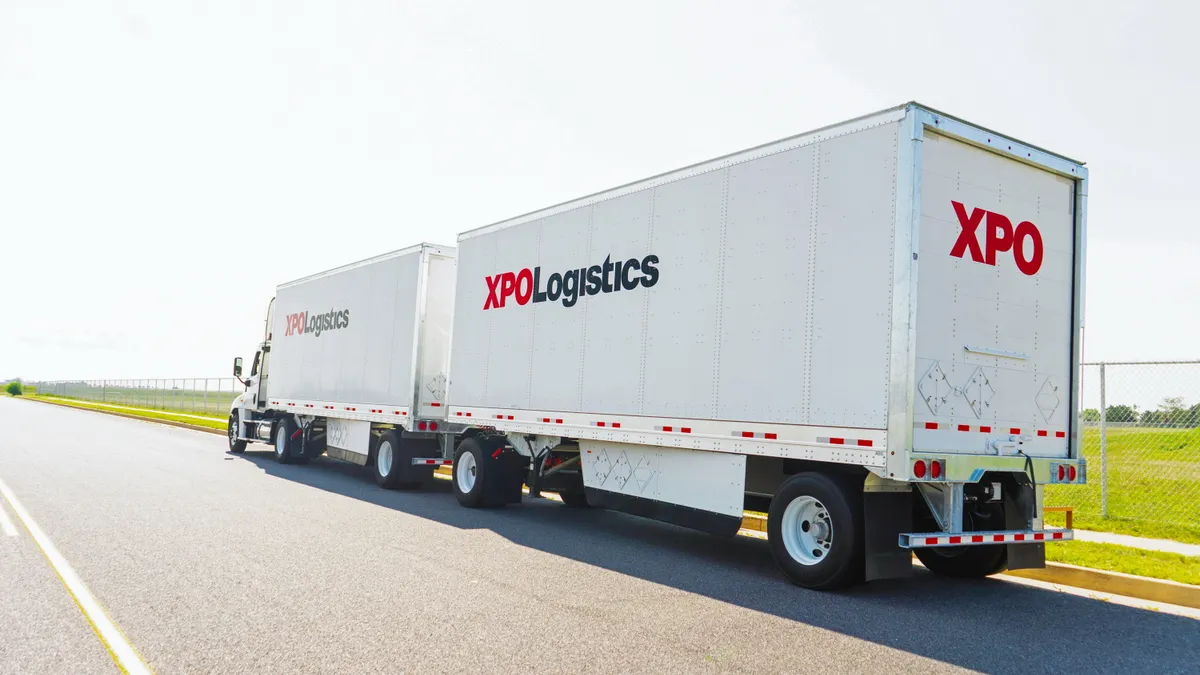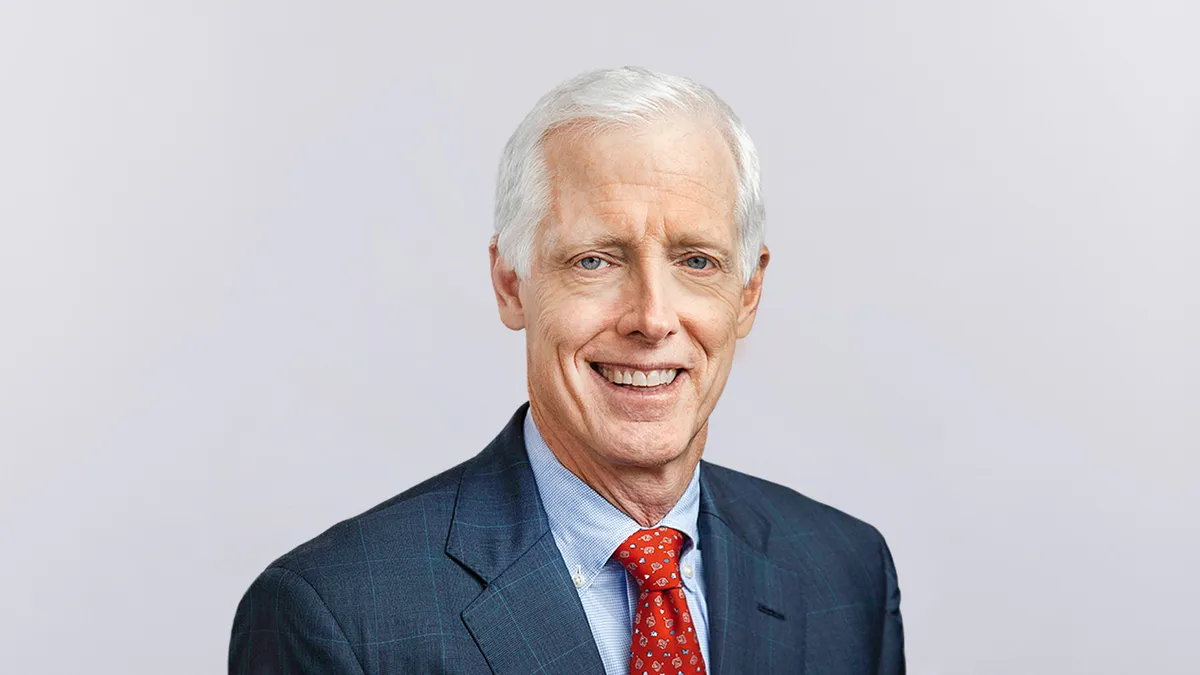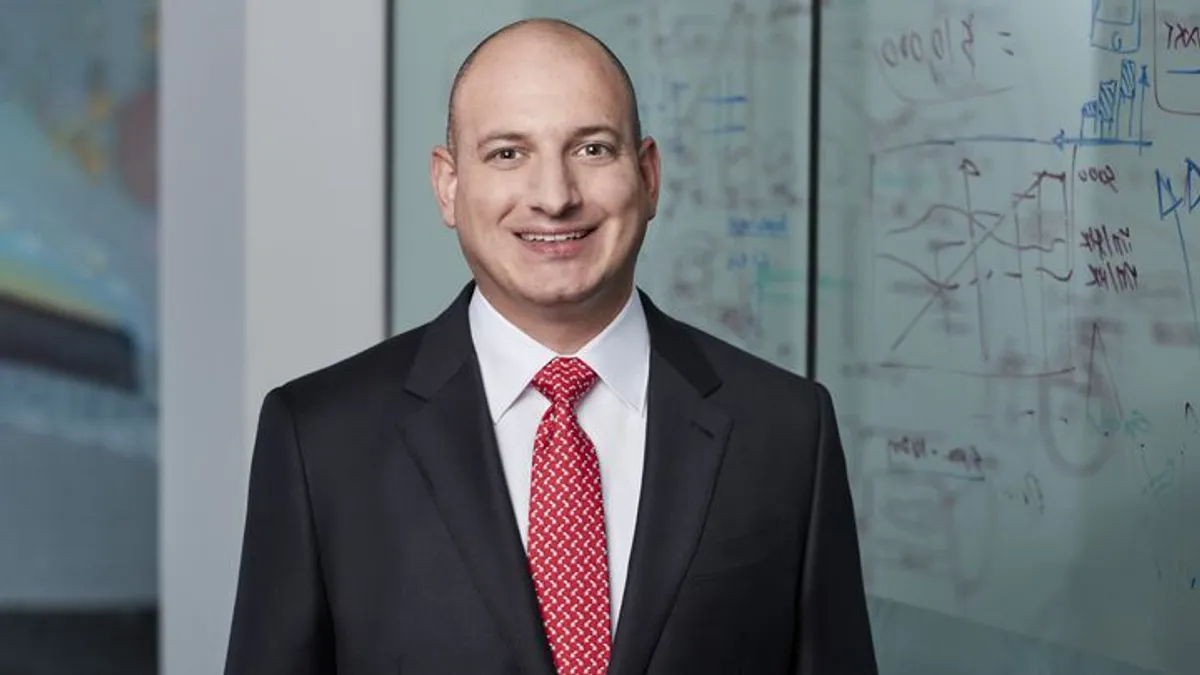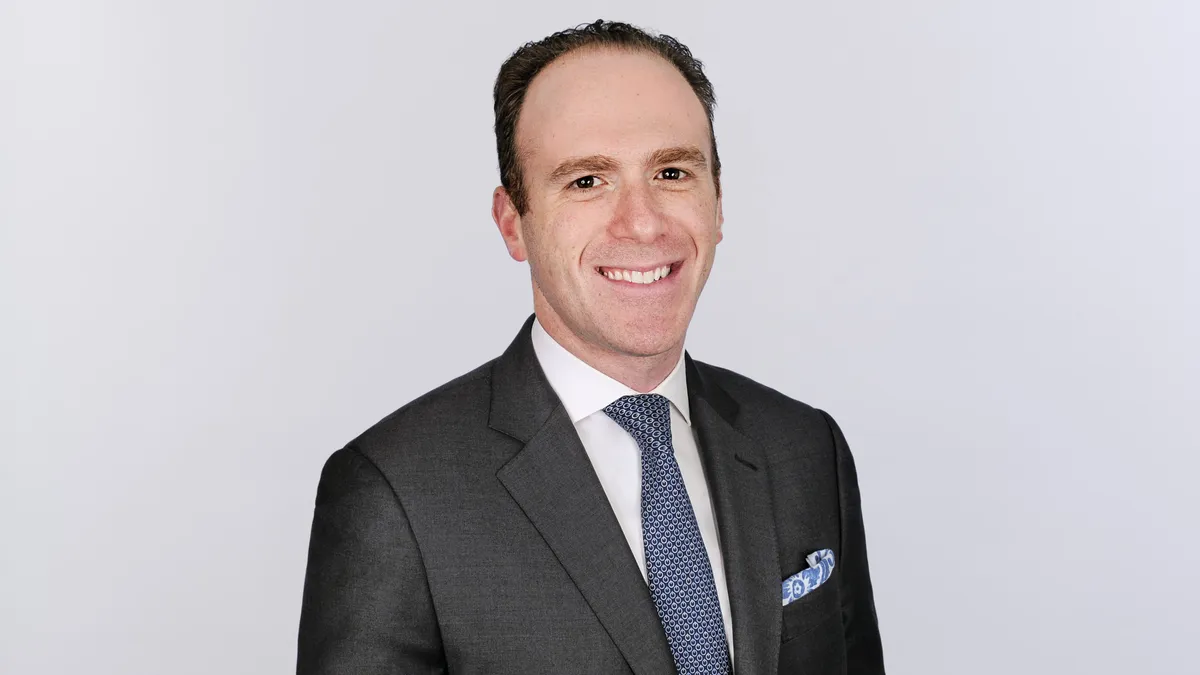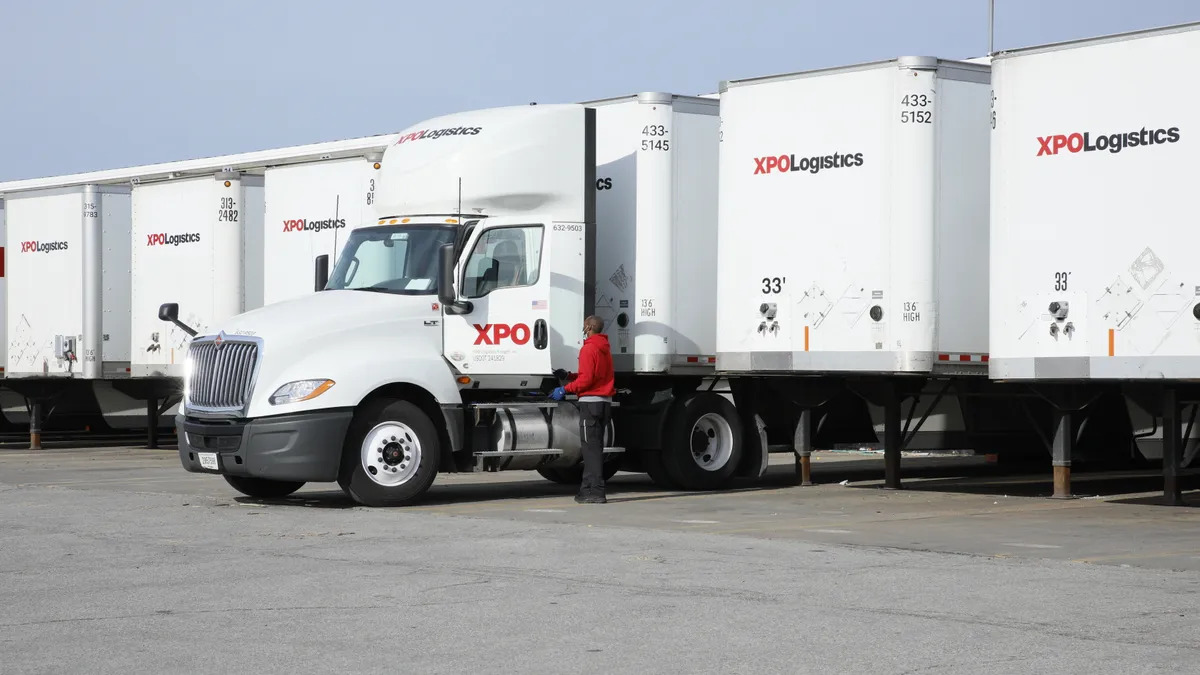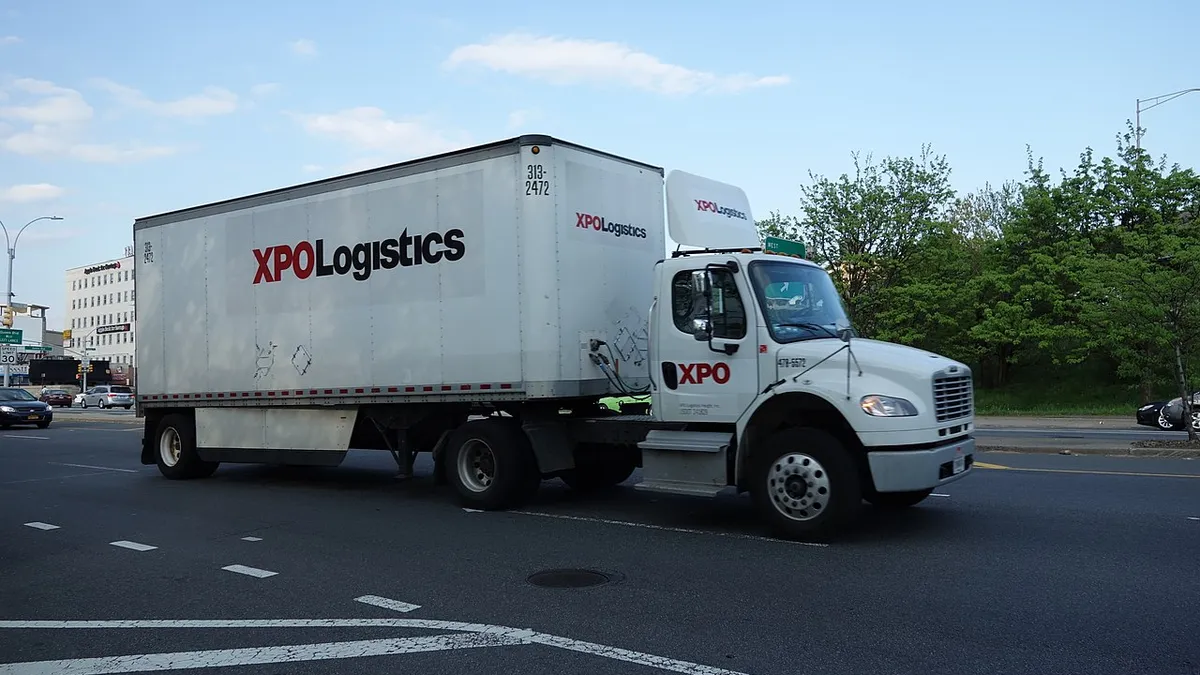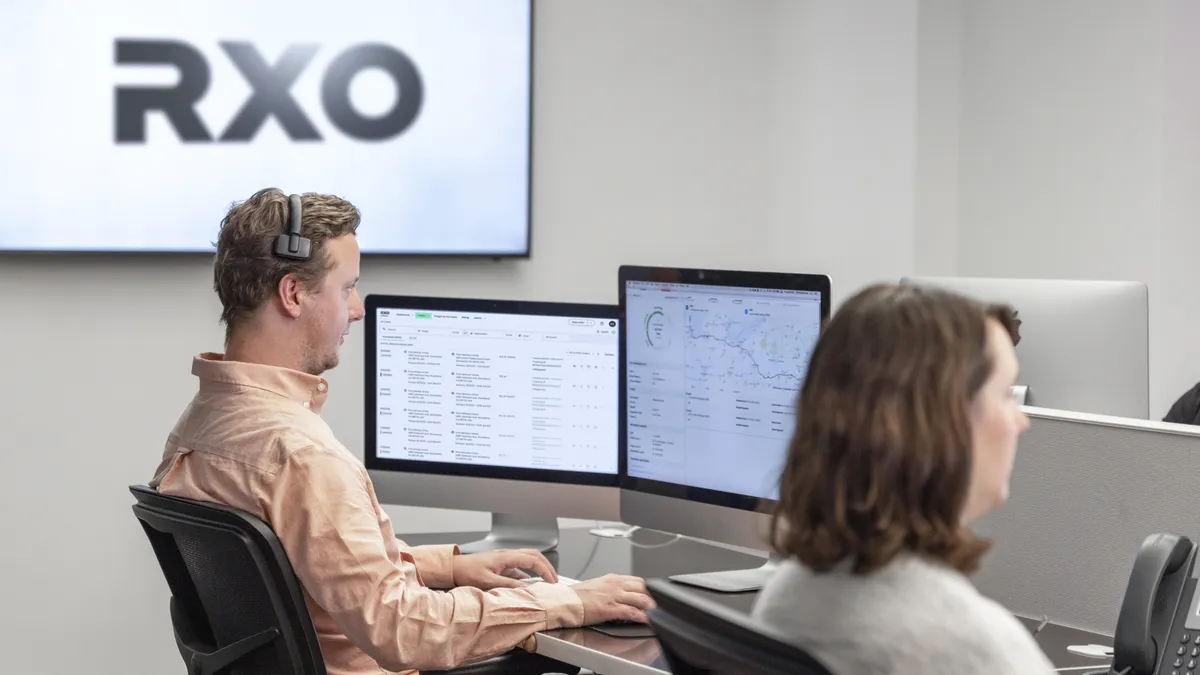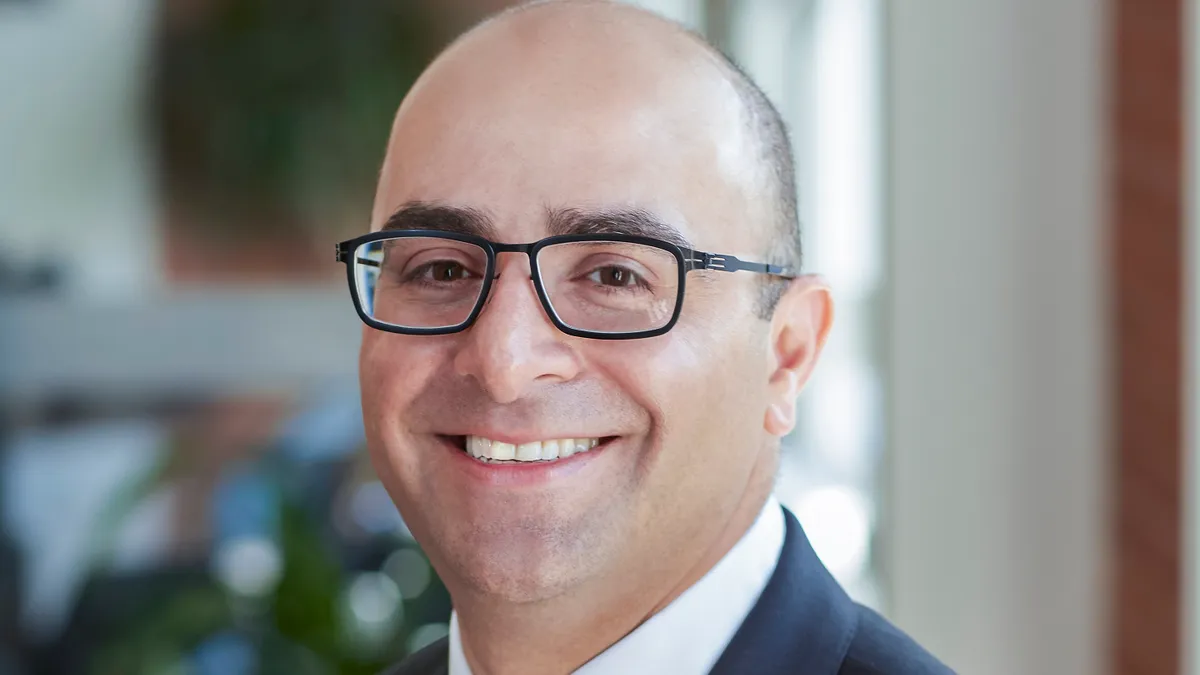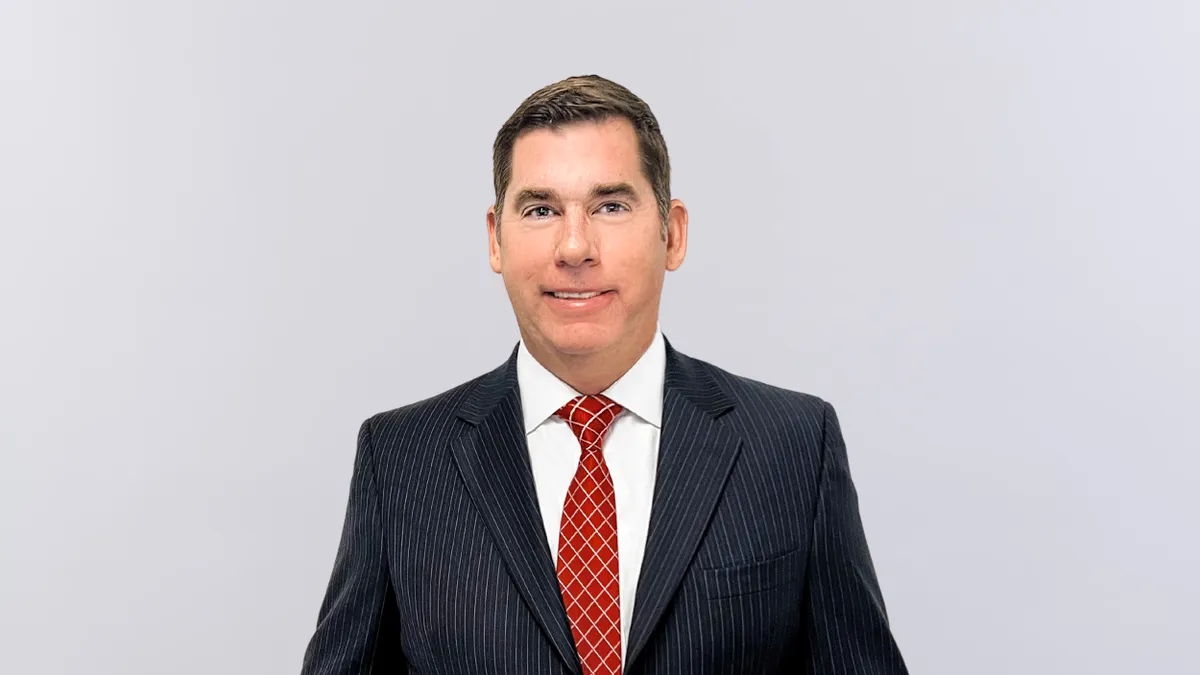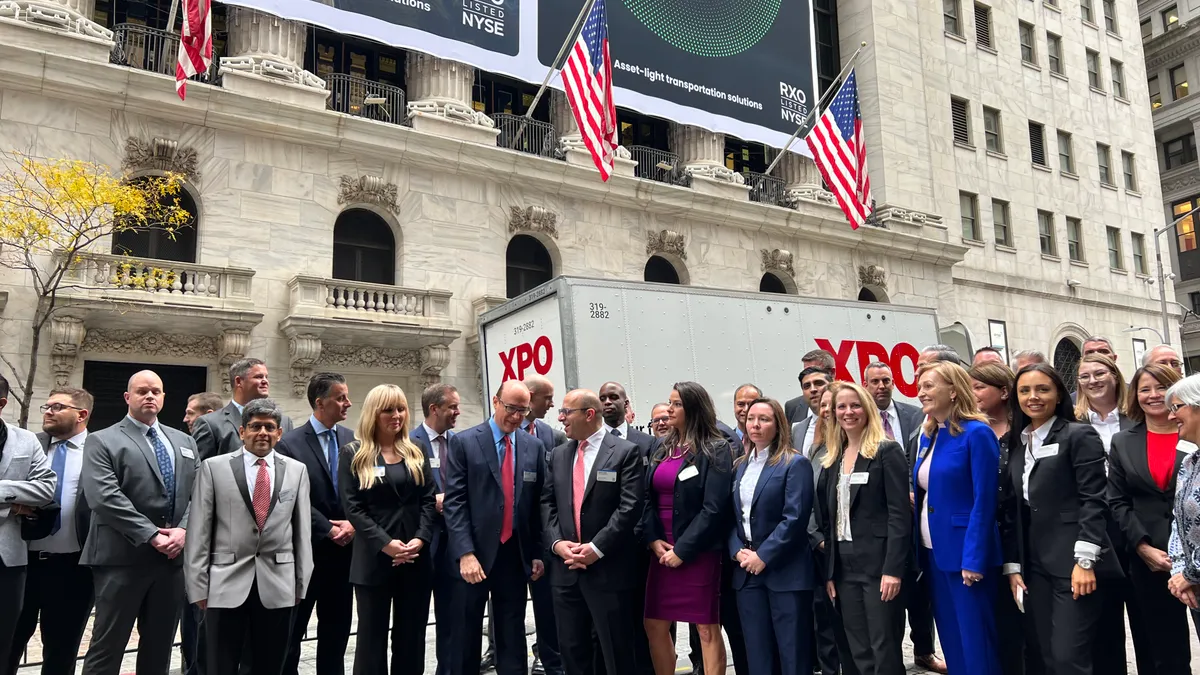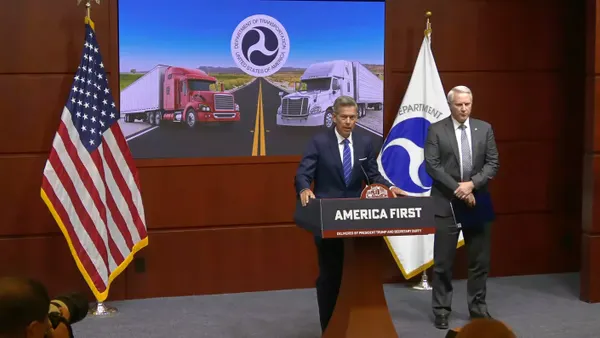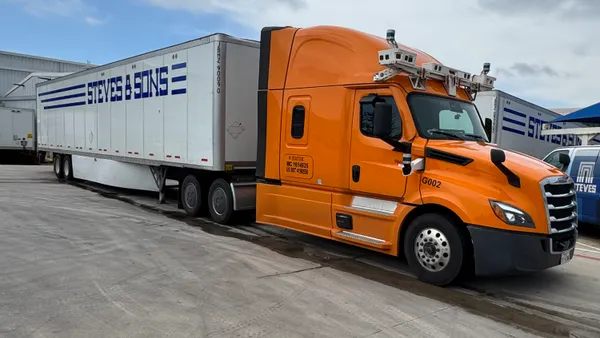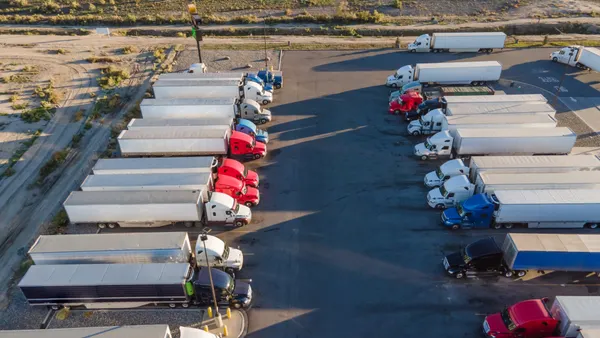XPO Logistics brokers transportation for half of the U.S. Fortune 100 companies and more than 200 of the Fortune 500. Its freight brokerage serves customers like Ford, General Motors, Owens Corning and Lowe’s, said Drew Wilkerson, XPO president of North American Transportation.
The incoming CEO of RXO, as the brokerage will be known following a Nov. 1 spinoff from XPO, Wilkerson plans to chase the business of the rest of the corporate America behemoths. At the same time, he plans to build out more capacity for smaller and mid-sized customers.
“We built our business off of the largest companies in the world, but we have a long way to go,” Wilkerson said. “We don't have enough market share from them. And we've got the other half of the Fortune 500 companies that we can go out and continue to draw business from.”
Ahead of the spinoff, Wilkerson shared more details about RXO’s plans in a video call interview with Transport Dive.
Editor’s note: This interview has been condensed for clarity.
TRANSPORT DIVE: Could you please tell our readers more about yourself?
DREW WILKERSON: I've been doing third-party multimodal transportation for more than 16 years. I started my career with C.H. Robinson, where I spent a number of years in different roles. I was on the carrier side, the customer side and did outside sales as well. I came over to XPO just over 10 and a half years ago, and I started leading a few offices across the Carolinas, and from there, just continued to pick up more and more responsibility. I eventually oversaw all of our brokerage operation, which over the last eight years, we've been able to grow three times faster than the overall market in the trucking brokerage industry.
I'm from a small town in South Carolina called Hartsville, about an hour and a half from Charlotte. I went to the University of South Carolina. Both my parents went to South Carolina and my wife went to South Carolina, so I have a lot of love for the state of South Carolina and the University of South Carolina.
I love what I do. I spend most of my time at work or with my family. I've got two beautiful girls that are 10 and 12. I've got a wife that I have been with for a very long time. We’ve been together since we were 16 years old.
What are your goals for RXO’s first year as a pure-play brokerage?
DW: If you look at what we're doing right now, we've got a great playbook. Everything that we have done, we have built around customers, carriers or employees. And by doing that, you know we've been able to grow our volume, expand our margin and increase our employee productivity.
For us, it's going to be operating as a standalone company, but it's going to be continuing to focus on technological innovation, and it's gonna be focusing on our customer and carrier relationships and being able to expand on that and bring on new customers and new carriers to continue to work with us.
Does RXO plan to further diversify its customer mix?
DW: Absolutely. We've built power lanes across the country. We focused on large customers first, because if we serviced [them], we knew that we would be able to quickly grow the volume in these power lanes.
There's going to be three phases of growth for us as we move forward. First is going to be continuing to grow with our existing customers. Second is focusing on the large customers that we're not doing business with. And then third is building out the small to mid-sized business, and allowing them to come in and tapping into the capacity that we have built up around the country.
You said in an investor letter that you look to unlock future capabilities by enhancing the RXO Connect platform, which provides real-time visibility to shippers and carriers. What capabilities are you referring to?
DW: I don't want to give you specific details because I'm sure my competitors are reading, and I don't want to give them a roadmap to what we're going to be doing in the future. We’ve got a 10-year head start on folks coming in and investing in technology.
There were three things we focused on whenever we were building out technology: Does this help us grow volume? Does this help us increase margin? And does this help increase employee productivity? So for us, we build it out based on customers, carriers and employees.
For customers, what we've got is a tool that they're using on a daily basis that tells them things like what day of the week they should ship something, what mode of transportation they should use. Do they have the opportunity to consolidate something? Can they optimize the routes that they're using today? Currently, we have access to a lot of data that helps our customers make these decisions. We've got over $3 billion dollars of data coming in annually from our truck brokerage group, and we've got $4 billion of freight under management within our managed transportation system.
Your investor letter also mentioned the possibility of future M&A. Could you elaborate on that strategy, and do you have a timeline in mind?
DW: That's not our first focus. Our first focus is organic growth. If you look over the last decade, 90% of our growth has been organic. So the growth that I'm talking about, we're growing three times what the brokerage industry is growing, it's been 100% organic growth.
We've got a good playbook of going out and being able to bring on customers, and once we get the customers they recognize the benefit of our technology. They recognize the service that they're getting and they love the solutions that we're creating, so they come back to us year after year. But they don't just come back to us, they [also] give us more freight. Last year, we grew volume with our top 20 customers in brokerage by nearly 30%. So organic will always be our first path, and if there's something out there that makes sense and it's going to create shareholder value, then it’s something we would take a look at.



